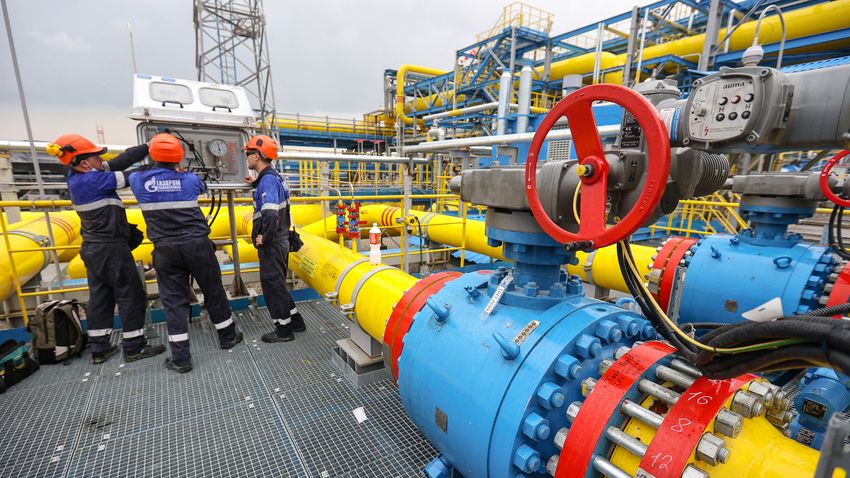The international credit rating agency stated that a sudden Russian natural gas export stop is not one of its baseline forecasts, but there is a risk of this happening.
The major macroeconomic shock that would result from such a development would cause lower-speed, in many cases negative economic growth in the region, would inflict permanent wounds on entire sectors, accelerate inflation, and would also exert prolonged pressure on public financing and the national debt.
All of this would put sovereign ratings under downward pressure, especially in those countries in which the debt quality indicators are already weak compared to those of peers with similar characteristics, according to Fitch Ratings' Wednesday analysis.
The credit rating agency stated that it does not expect that the European Union would be able to purchase a sufficient amount of natural gas from alternative sources in the event of a sudden stoppage of Russian natural gas supplies.
Due to supply and infrastructural constraints, it would take more than three years for the EU to replace Russian natural gas in the event of a complete stoppage of deliveries, and if Russian exports were to stop in the winter, it would require an almost immediate and extensive rationing of natural gas consumption in the EU countries - the London industry analysts of Fitch Ratings emphasize.
According to the company, within the European Union, Central and Eastern European countries are most exposed to these risks.
Central and Eastern European EU member states occupy the first eight places of the vulnerability index for the EU as a whole, developed by Fitch taking many factors into account. Latvia took first place, Hungary is in third place after Slovakia.
The study's chapter on Hungary highlights that natural gas accounts for 40 percent of the primary energy consumption of the Hungarian economy, and 95 percent of this amount of natural gas comes from Russia; domestic extraction in Hungary covers 12 percent of the annual demand.
Fitch Ratings stated: according to its estimation, in this environment, the complete loss of Russian natural gas deliveries without additional procurement sources could reduce the gross value added (GVA) produced by the Hungarian economy by approximately 3.1 percentage points.
In addition, the cessation of Russian gas exports would drive inflation even higher, and this would likely lead to further monetary tightening. However, the direct impact on the share of disposable income of Hungarian households would be smaller than in other Central and Eastern European countries, as official prices for electricity and natural gas are in force in Hungary, according to Fitch's Wednesday study.
According to the company, however, the situation of public financing in the Hungarian economy is weak compared to that of the partner countries in the region, and it would come under considerable pressure in the event of a slowdown in economic growth and further acceleration of inflation, as the authorities would likely provide additional subsidies to households.
However, this could derail the budget consolidation plans and prevent the reduction of the public debt to GDP ratio, which in turn would increase the risk of a possible negative credit rating step, according to a study presented by Fitch Ratings in London on Wednesday.
Fitch maintains Hungary's public debt obligations with a stable outlook, "BBB" rating - investment recommendation - just like the other two global credit rating agencies, Moody's Investors Service and S&P Global Ratings.
However, at the beginning of this month, Fitch Ratings changed the outlook for Mol Nyrt.'s rating to "BBB minus" - one notch lower than the Hungarian sovereign rating - from stable to negative, indicating the possibility of a downgrade in the future, primarily for the Hungarian oil and natural gas industry company with Russian oil and natural gas shipments. justifying the move with the risks associated with its significant dependence on
Fitch will next examine the Hungarian government debt rating on July 22.
MTI
Cover image: Illustration - Photo: Pavel Lvov/Sputnik via AFP












